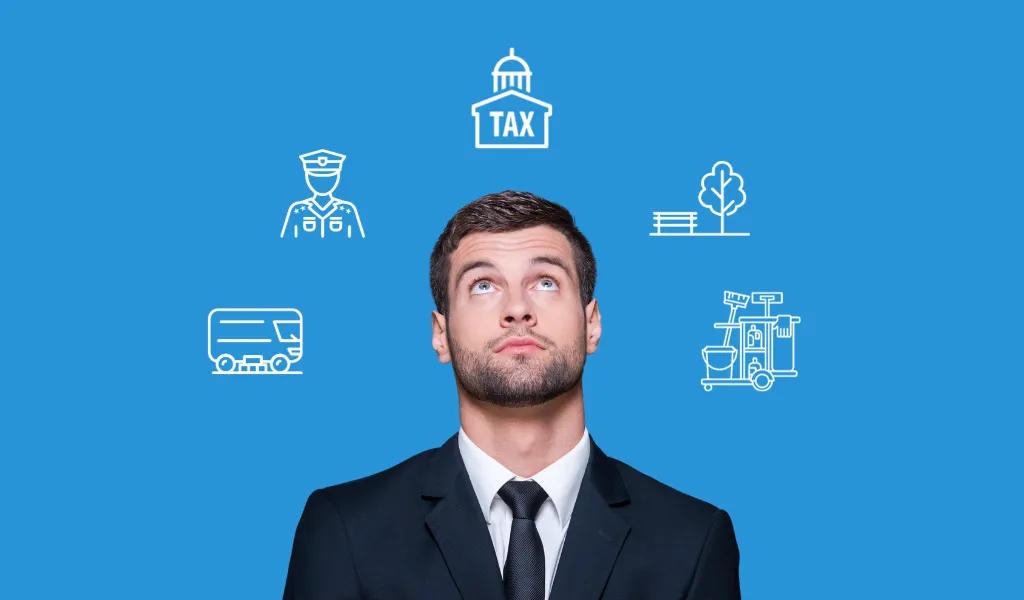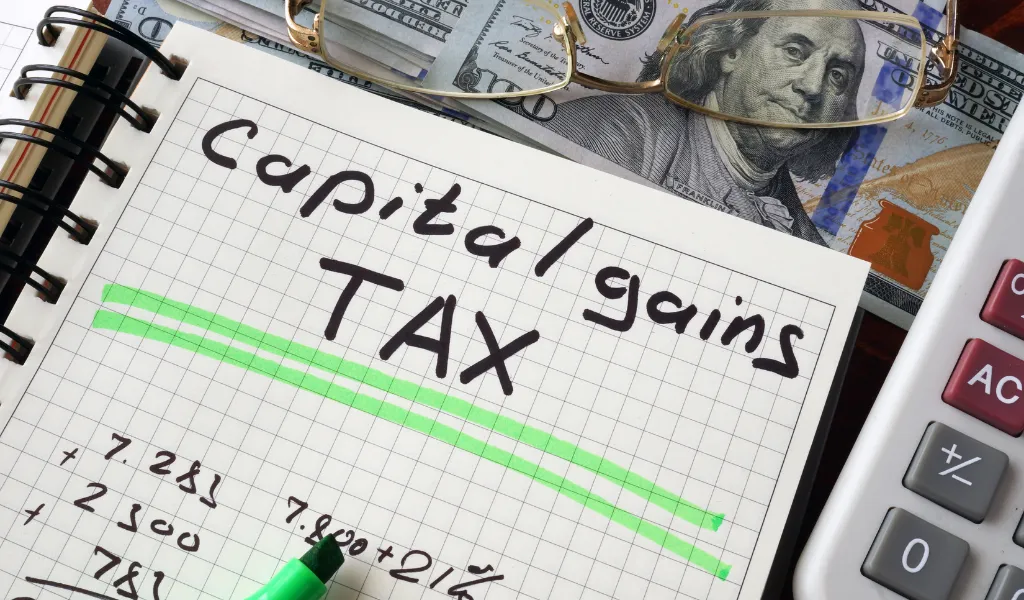Owning a second home comes with its own complexities in the UK. A lot of factors come into play regarding the costs of your second property. You must know how to deal with it. This is guide will help you understand all that and more. Find out the answer to the question: do you pay council tax on a second home?
First, let’s discuss the definition of council tax.
What is Council Tax?
Your local council charges council tax. The purpose of this tax is to fund local services. For example, rubbish collection. Its issuance begins in April and the payments last for 10 months. Thus, it is an annual charge. If you rent or own a home, you must pay council tax. That is, if you are over 18 years old. Furthermore, if two or more liable adults reside in your home, then you must pay full council tax.
What is a liable adult? Well, you are a liable adult unless you have a serious mental impairment or are a university student. If there is only one liable adult, then you receive a 25% discount. Whereas if there are no liable adult in the house, then you receive a 50% discount.
The good news is that there are many discounts and even total exemptions in certain cases.

What is a Second Home for the Purpose of Council Tax?
According to the second home council tax rules, second homes are properties that are furnished, but no one lives there. The property owner has a primary home somewhere else.
Do You Pay Council Tax on a Second Home in the UK?
Yes, you must pay full council tax on your second home. This is true in most cases. You pay this in addition to the council tax on your main residence. Depending on the rules of your local council, you may end up paying more council tax on your second home.
Is It Possible to Get a Council Tax Discount on Your Second Home?
It is most likely that your council will not give you a council tax discount on your second home. Most councils do not do so. Which means that you must pay the full council tax charge for your second home.
Nevertheless, there are certain situations in which you can get a discount on council tax. The following are the criteria for councils granting 50% council tax discount on your second home:
- You must live in somewhere else in a job-related accommodation because of the terms of your employment. For example, a minister of religion or a caretaker.
- A caravan is occupying a pitch, or a boat is occupying a mooring as your second home.
Make sure to check with your local council regarding the rules for second home discounts. Therefore, it is important to know the answer to the question: do you pay council tax on a second home?
Increase in Second Home Council Tax Bills from 2023
When it comes to council tax on second homes in England, local council can charge double council tax on homes that are furnished but not your sole or main residence. This is under the government’s Levelling Up and Regeneration Bill. As a result, second property owners must pay thousands of pounds more each year. This is true for most cases.
Meanwhile, in Wales, the highest council tax premiums on long-term empty homes and second homes have increased to 300% since April 2023. Before it was 100%. Therefore, it is costing second property owners thousands of pounds each year.
This means that councils in Wales can charge the council tax premium at any level to the threshold. Also, they can apply various premiums on long-term empty properties and second homes. Although, it is possible that certain properties are exempt. For example, short-term holiday lets. Thus, you must know that do you pay council tax on a second home?

How Can You Avoid Paying Council Tax on Your Second Home?
Now, the question arises if you can avoid second home council tax? Well, there are second homeowners who register this property as a business. Then, they let it out as an Airbnb or through agents. Therefore, they can avoid council tax completely. Instead, they access small business rates relief.
It is important to note that the rules are now stricter. Before, all you had to do was declare an intention to rent out your property as a holiday let. This was enough for you to avoid paying council tax. Now, the situation is different. Following are the current criteria to access small business relief:
Holiday Lets in England
As of 1 April 2023, the following are the requirements in England for properties to be valued for business rates:
- Property is available to let for short periods. A total of at least 140 days over the current and previous tax years.
- It is let for a minimum of 70 days in the last 12 months.
Whereas up till 31March 2023, only the first requirement was necessary. Therefore, the criteria have increased.
Holiday Lets in Wales
As of 1 April 2023, the following are the requirements in Wales for the valuation of properties at business rates:
- Property is available to let for short periods. A total of at least 252 days over the current and previous tax years.
- It is let for a minimum of 182 days in the last 12 months.
However, up till 31 March 2023, the requirements were as follows:
- Property is available to let for short periods. A total of at least 140 days over the current and previous tax years.
- It is let for a minimum of 70 days in the last 12 months.
Certainly, the criteria in Wales have changed drastically.
Holiday Lets in Scotland
While in Scotland, the following requirements are necessary:
- Property is available to let for short periods. A total of at least 140 days over the current and previous tax years.
- It is let for a minimum of 70 days in the last 12 months.
You can reach out to your local assessor to find out if your property is liable for business rates. Or at least part of it is liable. So, you should know that do you pay council tax on a second home.
What Happens if Your Home is Empty?
In a scenario where your property is unfurnished and empty for two or more years, you pay an empty home’s premium. Aside from your council tax, your local council charges a premium on your second home if it is empty.
The premium can end up costing you as much as:
- If your property is empty for over 2 years, then it is 100% of your council tax. Please note that it will cut down to 12 months under the Levelling up and Registration Bill.
- In case your home is empty for over 5 years, then it is 200% of your council tax.
- If your property is empty for over 10 years, then it is 300% of your council tax.
How does the council consider the property empty? The council considers it empty unless you occupy and furnish it for more than six weeks, consecutively. You will not need to pay the empty homes premium if your property is exempt from council tax.
Furthermore, you do not need to pay this premium if the property in question is an annex. Also, if as part of the armed forces you move into an armed forces accommodation because of your work.
Rules differ in Wales and Scotland. Therefore, you should check with your council to make sure. Hence, it is necessary to know the answer to the question, do you pay council tax on a second home?
Who Pays Council Tax on a Buy to Let?
Suppose you buy a property and decide to let it out to one household. Then, who should pay council tax? In that case, the tenants must pay it. There are certain situations in which the property owner must pay council tax. For example, if the property is let out as an HMO. The rooms are let out individually in a House in Multiple Occupation.
You must factor in costs such as a higher rate of Stamp Duty Land Tax (SDLT) when investing in a Buy to let. Additionally, you may end up paying Capital Gains Tax (CGT) when you sell the property. Make sure to learn about the costs and responsibilities of being a property owner. Thus, you should know do you pay council tax on a second home.
How to Challenge Your Council Tax Bill
Depending on what council band you are in, you can find out the amount of council tax you owe. In case your home is not in the right band, you can challenge it. If you do so successfully, the bills will drop. However, you should remain cautious when challenging your bill. This is because if you get it wrong, the band can increase. As a result, you will pay more council tax. Make sure you know the steps to proceed with the process of challenging your council tax bill.
Your biggest monthly outgoing is your mortgage. Luckily, you can save on it. How so? Well, you can do so through re-mortgaging onto a less expensive deal. You can contact a cost-free mortgage broker. This is the fastest and simplest method. They will explain all the options available to you and deal with the hard work.
What Happens If You Fail to Pay Council Tax?
Suppose you miss a council tax payment. Now, you are in arrears. In that case, you should reach out to the Council Tax office immediately and explain your situation to them. If you fail to do so, then you will end up in court. That is right. Your council will take you to court. Then, you need to pay court costs. There is a possibility of bailiff fees as well.
Do you Need to Pay Full Council Tax on a Shared Ownership Property?
The short answer is yes, you must pay full council tax. The only exception is if it entitles you to a council tax discount or reduction. Before you decide to buy a shared ownership property, make sure you know advantages and disadvantages of doing so. Now, you know the answer to the question: do you pay council tax on a second home?
Council Tax Bands in the UK – The Cost of Council Tax
How do you find out how much council tax you owe? It depends on the council tax band your property falls under. In Scotland and England, the basis for this is the value of your property on 1 April 1991. Whereas, in Wales it is on 1 April 2005.
Following are the tax bands A-H in England, Wales, and Scotland.
| Valuation Bands in England and Wales | Valuation Bands in Scotland |
| A – up to £40,000 | A – up to £27,000 |
| B – over £40,000 and up to £52,000 | B – £27,001 to £35,000 |
| C – over £52,000 and up to £68,000 | C – £35,001 to £45,000 |
| D – over £68,000 and up to £88,000 | D – £45,001 to £58,000 |
| E – over £88,000 and up to £120,000 | E – £58,001 to £80,000 |
| F – over £120,000 and up to £160,000 | F – £80,001 to £106,000 |
| G – over £160,000 and up to £320,000 | G – £106,001 to £212,000 |
| H – over £320,000 | H – £212,001 and above |
Moreover, these bands remain the same for both your second home and principal residence. Yet, you may have to pay a council tax premium on your second home. This results in a higher bill coming your way. Furthermore, if the house is vacant for an extended period, you may also end up paying an empty home’s premium. It is essential to know the answer to the question: do you pay council tax on a second home?
Is the Council Tax More on Your Second Home?
Now, the question arises whether you pay more council tax on your second home than on your primary residence. Well, that depends. Suppose you live in Wales, and you own a second home there. In that case, unless an exemption covers you, you will pay more council tax on your second home. Whereas that is not the case in England. You do not have to pay more for your second home. Unfortunately, that is about to change in April 2024. Then, you will have to pay more. Nevertheless, you can cut your council tax in certain situations.
Cons of Having a Second Home
Of course, there are drawbacks to purchasing a second home. For starters, you pay a higher rate of Stamp Duty Land Tax (SDLT). Moreover, Capital Gains Tax (CGT) can also apply when you sell it. Not to mention, you will end up paying additional expenses if you rent it out as a holiday let. For example, letting fees and maintenance costs.
If you buy a second home, you will need to pay a higher rate of Stamp Duty Land Tax (SDLT) and you may also need to pay Capital Gains Tax (CGT) when you sell too. Plus, you will have additional costs like maintenance and lettings fees if you are renting it out as a holiday let. Therefore, it is important to know do you pay council tax on a second home.
How Does HMRC Know About Your Second Home in the UK?
There are various ways through which HMRC can get information regarding property transactions. For example, Land Registry, third party notices to banks, and Stamp Duty Land Tax (SDLT) forms.
Conclusion
To conclude, you must pay council tax on your second home. The amount of council tax you owe depends on the council tax band you fall into. There are ways to avoid paying council tax. Make sure you meet the criteria for doing so. The rules vary in different parts of the UK. It also depends on your local council. Therefore, it is ideal to learn about the rules and criteria for council tax and its exemptions.








